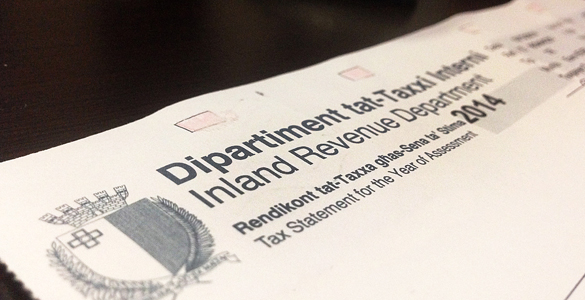Finance Minister Clyde Caruana, in a U-turn from declarations made last year, announced that Malta is retaining its current taxation system in 2024.
As part of his Budget 2024 speech, Minister Caruana said the full imputation taxation system “will continue to apply as before”.
He also added that “in the meantime”, government “will continue to work to have the measures and incentives in the form of grants or tax credits”, in reference to the Qualified Refundable Tax Credits scheme, “compliant with EU and OECD rules”. Here, he is referring to a series of tax rebates that see foreign companies reduce their tax bills to an effective rate of five per cent, or less in some instances.
Therefore, while in a transitional period, he added that “the taxation of these companies may increase a little” while ensuring that “Malta remains competitive for these companies”.
The Minister also announced that with regards international taxation, talks continued within the OECD on the so-called Two Pillar Solution.
In general, Pillar 1 deals with the reallocation of taxation rights between countries while Pillar 2 deals with global minimum taxation (i.e. an effective tax rate of 15 per cent) for companies that form part of large multinational groups that have annual revenues of €750 million or more.
The global minimum tax framework under Pillar 2 is already a reality, with EU Member States agreeing on a Directive for the implementation of this framework within the EU, and many countries have already started the process towards the implementation of these rules.
The EU Directive implementing the global minimum tax will enter into force in 2024.
However, this Directive provides for Member States to delay its application for a maximum of six years where certain particular circumstances apply – basically, where in the particular Member State there are few instances large multinational companies.
In Malta, he previously confirmed that close to 700 companies that have a base locally employing around 20,000 people would be impacted by the Pillar 2 rules.
“In this context, it would suit our country not to introduce any of the components of the Pillar 2 rules in 2024. That is, we will not introduce a tax top-up that leads to the minimum tax rate of 15 per cent according to the measures contemplated in Pillar 2, the so-called 58 Income Inclusion Rule (IIR), Undertaxed Payments Rule ( UTPR) and the Qualified Domestic Minimum Top-up Tax (QDMTT).
“This is so that we can follow global developments and be able to take action as needed in the context of these developments. Nor are we going to change the tax system we have present.”
Featured Image:
Finance Minister Clyde Caruana / DOI Photo – Jeremy Wonnacott
Top 5% of taxpayers responsible for one-third of all income tax paid in Malta
On the other hand, the bottom third of income earners pay just 1.7% of all income tax generated
The Malta Institute of Accountants prepares for its 2024 Anti-Money Laundering Conference
Held at the Radisson Blu, St Julians, this latest AML Conference promises to bring exclusive insights on new procedures
Eurozone interest rates to remain unchanged
The European Central Bank noted that price pressures remain persistent






